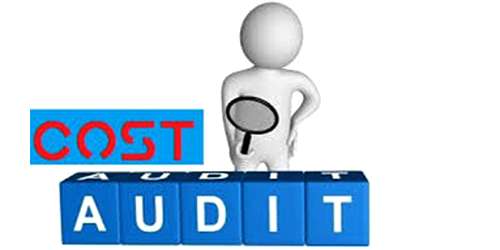

User Intent
Users searching for “Cost Audit” want to understand what it is, its applications, benefits, and limitations. Many may be business owners, financial professionals, or students studying accounting. Providing a detailed, structured explanation with a comparative table and FAQs will help them grasp the concept fully.
What is Cost Audit? A Complete Guide
Introduction
In today’s competitive business environment, managing costs effectively is crucial for profitability. Cost audit plays a vital role in ensuring that a company’s cost records are accurate and comply with financial regulations. It helps businesses identify inefficiencies and optimize expenses. But what exactly is cost audit, and why is it essential? Let’s explore in detail.
Definition of Cost Audit
Cost audit is the systematic examination of cost records, statements, and accounts to verify their accuracy, reliability, and adherence to cost accounting principles. Unlike financial audits, which focus on financial statements, cost audits assess production and operational costs. The primary objective is to ensure that costs are recorded correctly, analyzed efficiently, and controlled effectively.
Application of Cost Audit
Cost audit is used in various sectors and serves multiple purposes. Here’s how it applies in different areas:
1. Manufacturing Industry
- Identifies production inefficiencies.
- Ensures accurate costing of products.
- Helps in price fixation and cost control.
2. Service Industry
- Helps service providers optimize resource usage.
- Reduces unnecessary overhead costs.
- Ensures compliance with pricing regulations.
3. Government Regulations & Compliance
- In some countries, cost audits are mandatory for specific industries (e.g., pharmaceuticals, electricity, telecom).
- Ensures businesses do not overcharge consumers.
4. Internal Management Decision-Making
- Assists in budgeting and financial planning.
- Helps detect fraud and inefficiencies.
- Provides insights for investment and expansion decisions.
Benefits of Cost Audit
Cost audits offer numerous advantages to businesses. Below are some key benefits:
1. Cost Reduction & Control
By identifying wasteful expenditures, cost audits help companies cut unnecessary costs and improve overall efficiency.
2. Improved Accuracy of Cost Records
Cost audits ensure that all expenses are accurately recorded, reducing errors and financial misstatements.
3. Enhanced Decision-Making
With clear insights into cost structures, management can make informed business decisions, such as pricing, budgeting, and investment planning.
4. Prevention of Fraud & Errors
Since cost audits involve a thorough review of records, they help detect and prevent fraudulent activities or financial misreporting.
5. Compliance with Legal Requirements
Many industries are legally required to conduct cost audits to ensure fair pricing and regulatory compliance.
6. Boosts Investor & Stakeholder Confidence
A company with transparent cost records and audits is more likely to gain investor trust, attracting potential investments.
Limitations of Cost Audit
Despite its advantages, cost auditing has certain limitations:
1. Time-Consuming Process
A cost audit requires detailed scrutiny of financial records, which can be time-intensive and resource-heavy.
2. High Cost of Implementation
For small businesses, hiring professional cost auditors can be expensive.
3. Dependency on Accurate Data
If cost records are incomplete or incorrect, the audit results may not be reliable.
4. Limited Scope in Certain Businesses
Some industries may not benefit significantly from cost audits, especially those with variable costs that are hard to control.
5. Resistance from Employees
Employees may feel pressured or hesitant to share data, fearing exposure of inefficiencies or errors.
Comparative Table: Cost Audit vs. Financial Audit
To better understand cost audit, let’s compare it with financial audit:
| Aspect | Cost Audit | Financial Audit |
|---|---|---|
| Objective | Ensures cost control and efficiency | Ensures financial accuracy and compliance |
| Scope | Focuses on cost records, expenses, and operational efficiency | Focuses on financial statements, assets, and liabilities |
| Mandatory? | Mandatory in specific industries | Generally mandatory for all companies |
| Users | Internal management, government | Investors, shareholders, regulators |
| Benefit | Helps optimize costs and improve productivity | Ensures financial statements are accurate and fraud-free |
Conclusion
Cost audit is a powerful tool for businesses to control expenses, improve efficiency, and ensure compliance with regulations. While it has limitations, its benefits outweigh the drawbacks, making it an essential process for cost management. Whether you are a business owner, accountant, or student, understanding cost audits will help you appreciate their role in financial management.
Frequently Asked Questions (FAQs)
1. Is cost audit mandatory for all businesses?
No, cost audits are mandatory only for certain industries as per government regulations. However, companies can voluntarily conduct them for better cost control.
2. Who can conduct a cost audit?
Only a certified cost auditor, typically a Cost and Management Accountant (CMA), is authorized to conduct cost audits.
3. What is the difference between cost audit and cost accounting?
Cost accounting involves recording and analyzing costs, while cost audit verifies and ensures the accuracy of those records.
4. How often should a company conduct a cost audit?
The frequency depends on regulatory requirements and internal management decisions. Some companies conduct it annually, while others may do it more frequently.
5. What are the consequences of not conducting a cost audit?
Non-compliance in mandatory sectors may lead to legal penalties, reputational damage, and financial inefficiencies.
For further details access our website: https://vibrantfinserv.com
